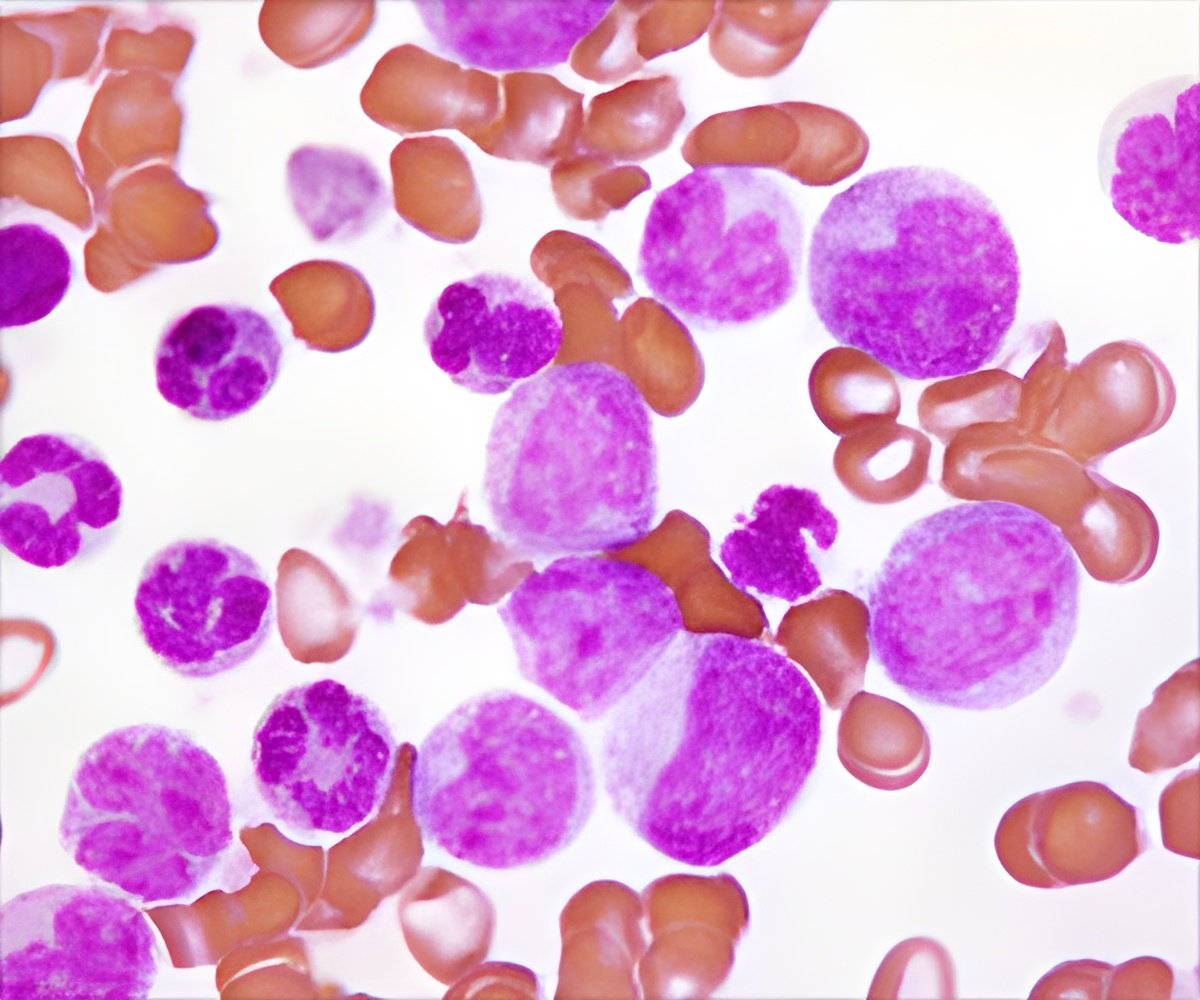
‘A novel mechanism in a combination drug therapy that shows potential as a new approach for treating acute myeloid leukemia has been discovered by scientists.’
Tweet it Now
The study looked at a combination of two drugs, both of which
significantly reduce some cancer cells' ability to survive and
propagate. One was a DNMT inhibitor, while the
other was a poly-ADP-ribose polymerase (PARP) inhibitor, talazoparib.
PARP inhibitors target and block proteins which cancer cells depend on
to repair DNA for their survival. DMNT inhibitors, such as 5-azacytidine
and decitabine, boost the interactions of PARP inhibitors to block
these proteins even further, causing cancer cell death, the researchers
found."Our preclinical data suggest that combining low doses of these inhibitors will enhance the clinical effects of both drugs as a potential treatment for patients with AML," says the senior author, Feyruz V. Rassool, associate professor of radiation oncology at the University of Maryland School of Medicine (UM SOM) and a researcher at the University of Maryland Marlene and Stewart Greenebaum Comprehensive Cancer Center (UMGCCC).
"Moreover, our initial data suggest that subtypes of AML with a poor prognosis are likely to be sensitive to this new therapeutic approach," she says, adding that less than 10% of patients with certain forms of AML achieve long-term survival.
Dr. Rassool says that a clinical trial is planned to test whether low doses of a DNMT inhibitor, decitabine, and an investigational PARP inhibitor, talazoparib, can be safely combined and whether this therapy shows efficacy for AML patients, especially those who cannot receive intensive chemotherapy, whose leukemia is resistant to treatment, or who have experienced a relapse after treatment. The trial, which will be led by Maria R. Baer, professor of medicine at UM SOM and director of hematologic malignancies at UMGCCC, will enroll patients at the Greenebaum Comprehensive Cancer Center and several other sites.
"This is really a new paradigm mechanism that is being translated into a clinical trial," Dr. Rassool says. "It's not just putting two drugs together. We have shown in the laboratory that the proteins that these inhibitors target actually interact, so the effects of these inhibitors are enhanced through this interaction. Therein lies the novelty of this new approach."
Advertisement
Dr. Rassool and colleagues at UMGCCC and UMSOM collaborated with scientists at the Sidney Kimmel Comprehensive Cancer Center at Johns Hopkins and the National Institute on Aging. Stephen B. Baylin, MD, the Virginia and DK Ludwig Professor of Oncology and Medicine and associate director for research programs at the Johns Hopkins Kimmel Cancer Center, is the study's co-senior author.
Advertisement
PARP inhibitors are used primarily to treat tumors linked to defects in BRCA genes, but may show promise in other cancers when combined with other drugs. Certain kinds of cancer cells depend heavily on PARP to repair DNA damage. If PARP is blocked, these cells die. PARP inhibitors also cause PARP to become trapped in the cancer cells' DNA, a process that is greatly enhanced when a DMNT inhibitor is added, Dr. Rassool says. This leads to massive DNA damage that cannot be repaired, and the cancer cells self-destruct.
DNMT inhibitors suppress DNA methylation, resulting in gene expression that significantly interferes with cancer cell growth. They are not usually combined with PARP inhibitors.
"Dr. Rassool and her colleagues have identified an exciting new mechanism for attacking cancer that may ultimately provide a new option for treating patients with leukemia and other cancers," says E. Albert Reece, vice president for medical affairs at the University of Maryland and the John Z. and Akiko K. Bowers Distinguished Professor and dean of UMSOM. "We are committed to translational research, and this is excellent example of how we are able to move an important scientific discovery in the laboratory into the clinic where it may potentially benefit patients."
Source-Eurekalert










